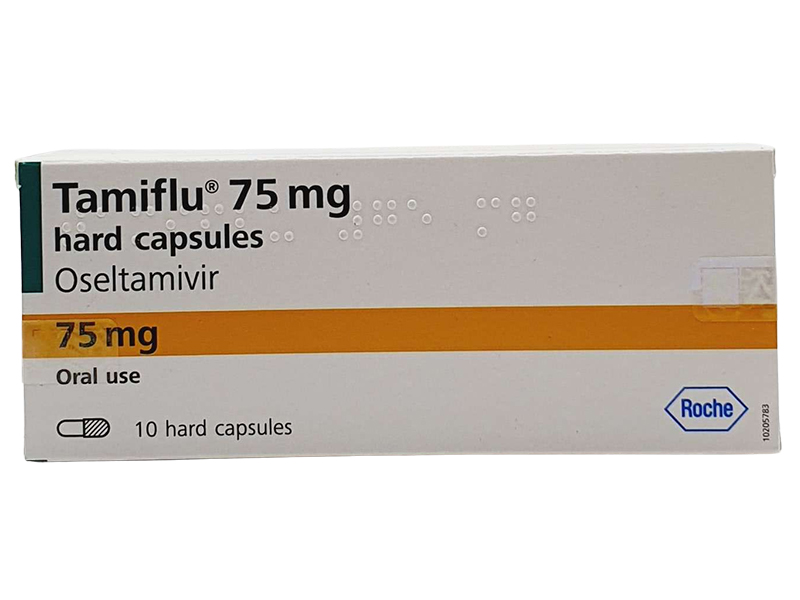What is Tamiflu?
Tamiflu is an anti-viral medication used to treat or prevent flu (the influenza virus). Tamiflu is currently the only licensed medication that has been clinically proven to reduce the duration of a flu outbreak.
How Effective is Tamiflu
Tamiflu has been clinically proven to reduce the duration of flu by up to 30% compared to people who don't take Tamiflu in the first 48 hours. You should take Tamiflu as soon as possible for the maximum effect.
How does Tamiflu Work?
Tamiflu belongs to a group of medicines known as neuraminidase inhibitors. Tamiflu blocks the effects of a chemical called neuraminidase that is created by the influenza virus. As the flu virus needs neuraminidase to spread in the airways. By blocking the effects of neuraminidase, Tamiflu reduces the spread of the influenza virus in the airways. This makes it easier for the body's immune system to clear up the infection.
When Should I take Tamiflu
Tamiflu can be taken to treat a current outbreak of flu if you start taking within 48 hours of flu symptoms appearing. Alternatively Tamiflu can be taken to prevent the flu if you have been in contact with someone with the flu or for up to six weeks as seasonal protection.
How to Take Tamiflu
To treat a current outbreak: The recommended oral dose is one tablet of Tamiflu (75mg) twice daily for 5 days for adolescents (13 to 17 years of age) and adults.
To prevent catching the flu from someone who is infected:The recommended dose for prevention of influenza following close contact with an infected individual is one tablet (75mg) daily for 10 days
Seasonal Protection:The recommended dose for prevention of influenza during a community outbreak is Tamiflu (75mg) once daily for up to 6 weeks.
Side Effects of Tamiflu
Like all medicines, this medicine can cause side effects, although not everybody gets them. Many of the side effects listed below may also be caused by influenza.
The following serious side effects have been rarely reported since oseltamivir has been marketed:
- Anaphylactic and anaphylactoid reactions: severe allergic reactions, with face and skin swelling, itchy rashes, low blood pressure and breathing difficulties
- Hepatic disorders (fulminant hepatitis, hepatic function disorder and jaundice): yellowing of the skin and white of the eyes, change in stool color, changes in behaviour
- Angioneurotic oedema: sudden onset of severe swelling of the skin mainly around the head and neck area, including eyes and tongue, with difficulties breathing
- Stevens-Johnson syndrome and toxic epidermal necrolysis: complicated, possibly life-threatening allergic reaction, severe inflammation of the outer and possibly inner skin, initially with fever, sore throat, and fatigue, skin rashes, leading to blisters, peeling, shedding of larger areas of skin, possible breathing difficulties and low blood pressure
- Gastrointestinal bleeding: prolonged bleeding from the large bowel or spitting up blood
- Neuropsychiatric disorders
Alternatives
Flu Vaccination
Flu vaccination by injection is available to protect adults at risk of flu and its complications. It's not 100% guaranteed to stop all flu viruses and the level of protection may vary between people, however, if you do get flu after vaccination it's likely to be milder and not last as long than it would otherwise have been.


